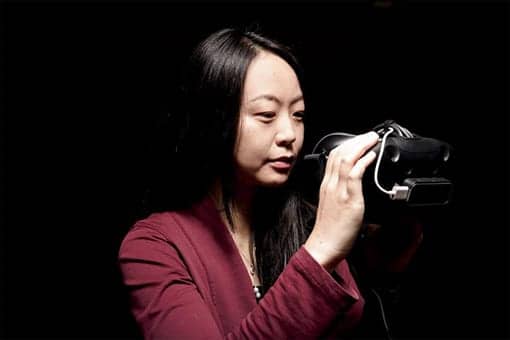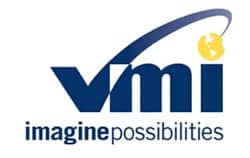
Dr Peii Chen, senior research scientist in Stroke Research at Kessler Foundation, with the VR-SRT System under development.
Kessler Foundation has partnered with Virtualware Group to develop the VR-SRT System, a virtual reality-based treatment for spatial neglect, a common disability among stroke survivors.
Spatial neglect disrupts basic self-care activities and impairs postural balance, reading ability, and navigation among those who have experienced a stroke. It also hinders rehabilitation outcomes and recovery, as evidenced by prolonged hospitalization and an increased risk for falls and injuries, notes a media release from Kessler Foundation.
The treatment is designed to leverage three-dimensional (3D) virtual environments for immersive training scenarios to maximize improvement of health and function among these patients.
“The VR-SRT System is based on established theories of neurorehabilitation approaches for spatial neglect. Making the treatment game-like will improve patient engagement and motivate the patients to complete treatment regime while receiving rehabilitative benefits,” notes Peii Chen, PhD, senior research scientist in Stroke Rehabilitation Research at Kessler Foundation, who, along with Denise Krch, PhD, are directing the treatment’s development, in the release.
“As VR hardware and software become more affordable and accessible, novel therapy paradigms like the VR-SRT System will be at the forefront of rehabilitation, facilitating treatment delivery, improving outcomes, and reducing the burdens on individuals, families, and society.”
The goal of the VR-SRT System is to improve control of spatial attention and body-environment awareness through an immersive training process that remaps and realigns visual and motor modalities in the 3D world. The VR-SRT System engages the user’s visual system through stimuli presented in a head-mounted display, while simultaneously engaging the patient’s motor system through head- and positional tracking and a marker-less hand-tracking device.
“For many years, we have been working on the intersection between digital technology and health, developing innovative solutions derived from the latest scientific research and the collective experience of our team,” remarks Julio Alvarez, eHealth Business Unit Manager at Virtualware.
“The current project poses a very attractive technological challenge for Virtualware; we are excited to deliver a series of digital interventions that may aid patients with neuropsychological impairment on their road to recovery.”
[Source(s): Kessler Foundation, EurekAlert]





Hi Ed! Thank you for your recommenation. I’ll check it out.
Kai F. Trondheim, Norway
This is very interesting information. A cure for spatial neglect. Where van I buy This software, suitable for Oculus Quest?
Hello, Kai,
I’d recommend you contact VirtualWear Group https://www.virtualwareco.com or Dr. Chen at Kessler.
—Ed.
Hi Ed! Thank you for your recommenation. I’ll check it out.
Kai F. Trondheim, Norway